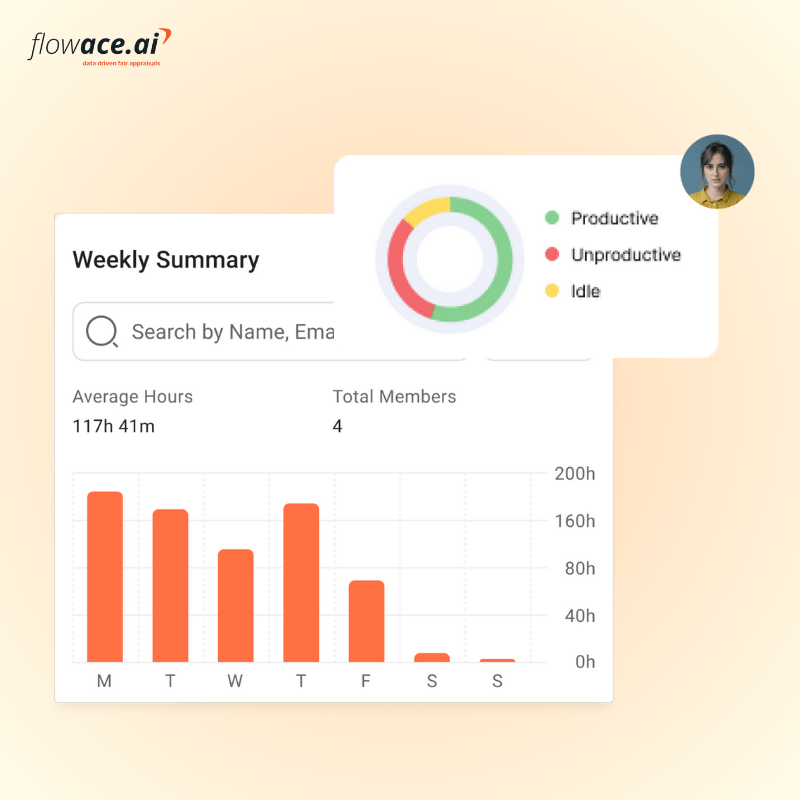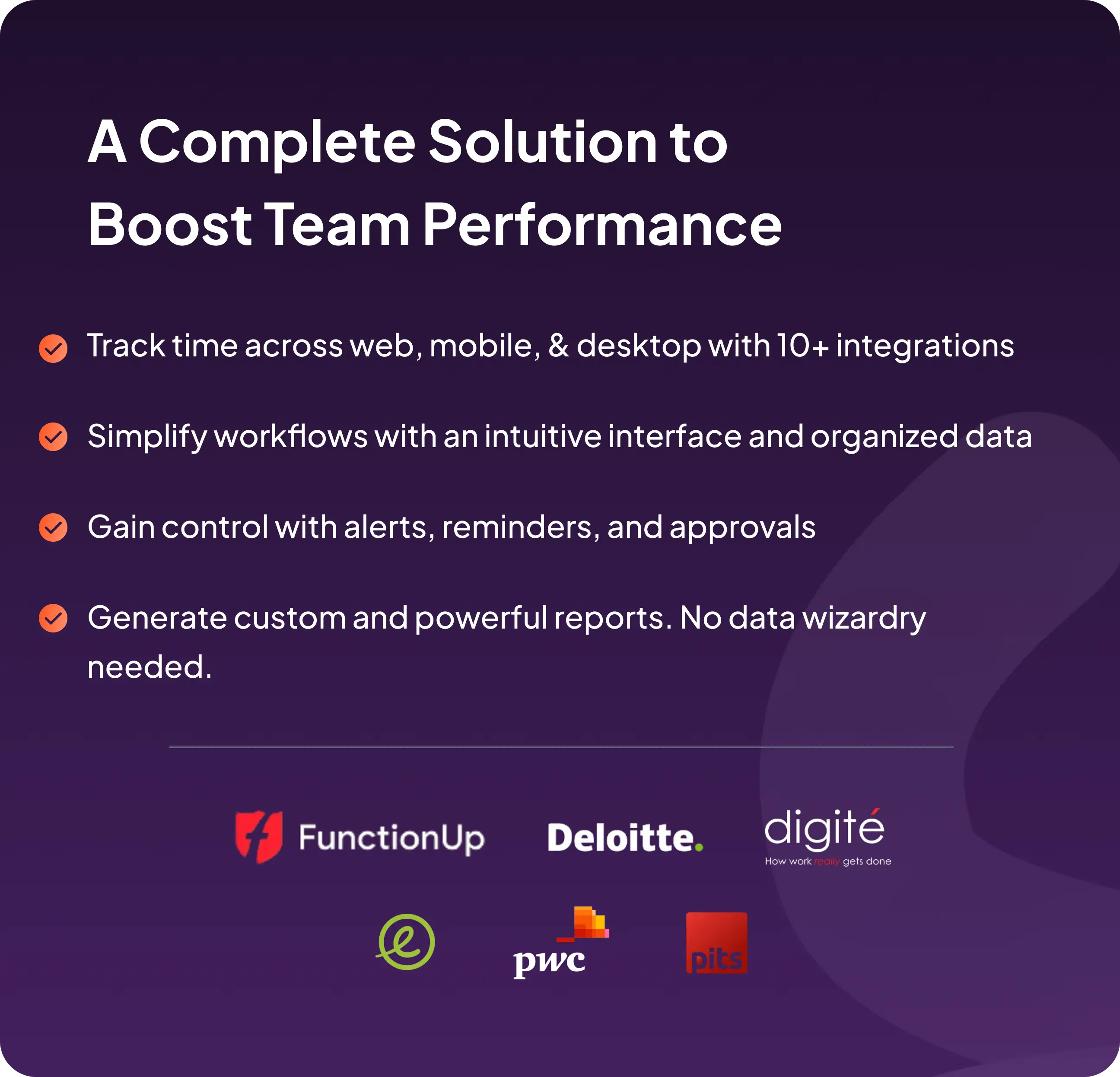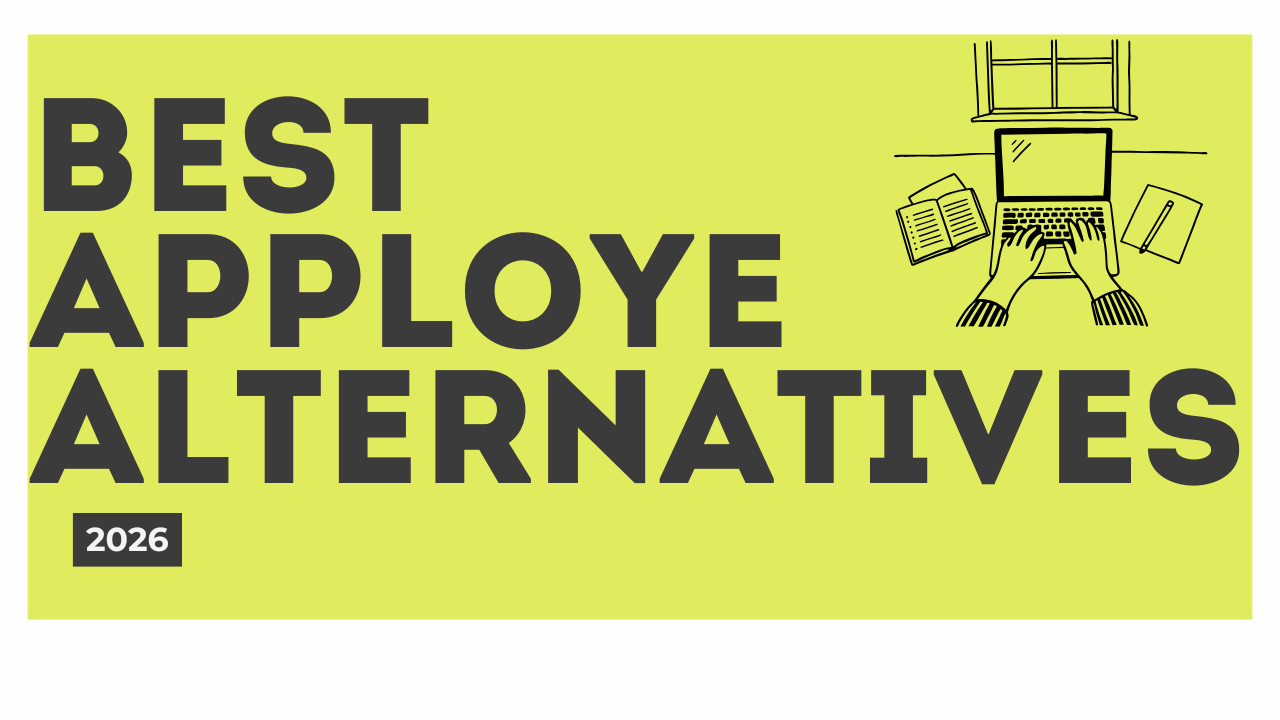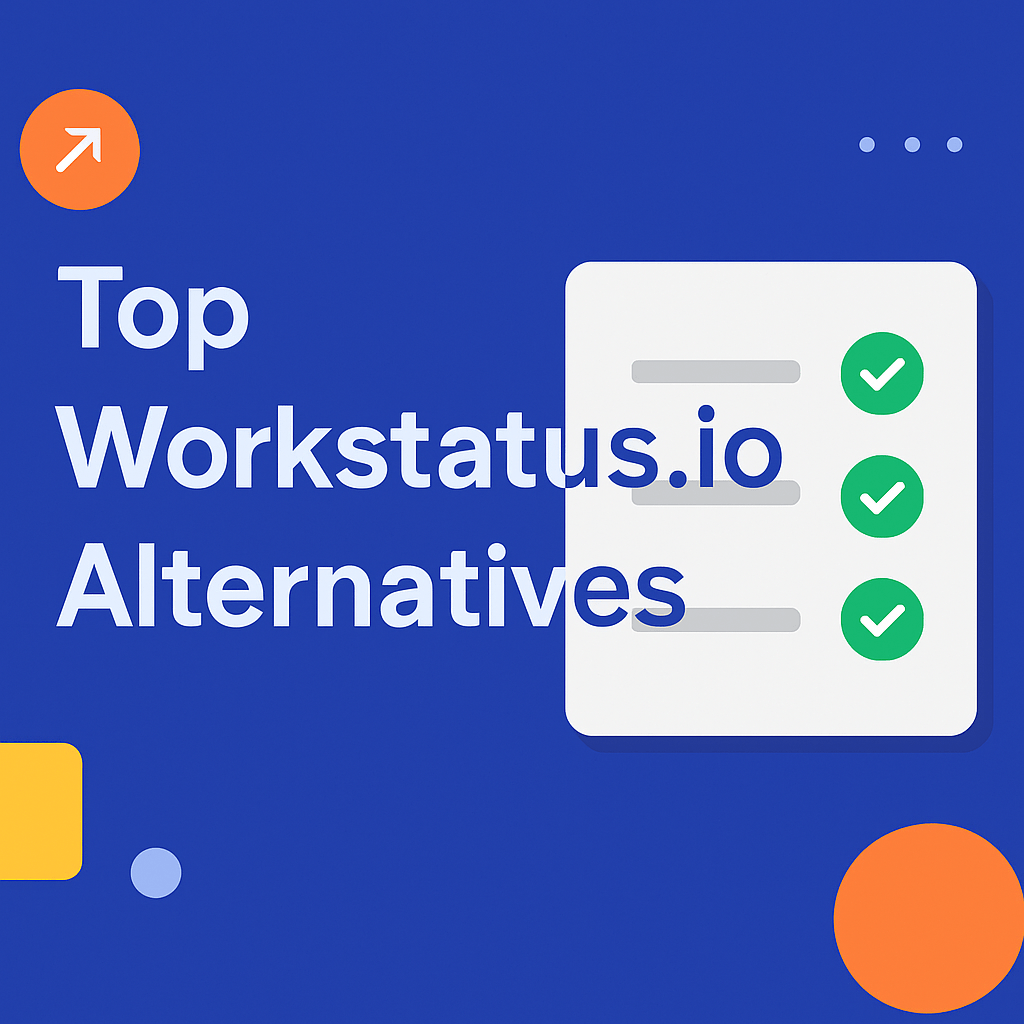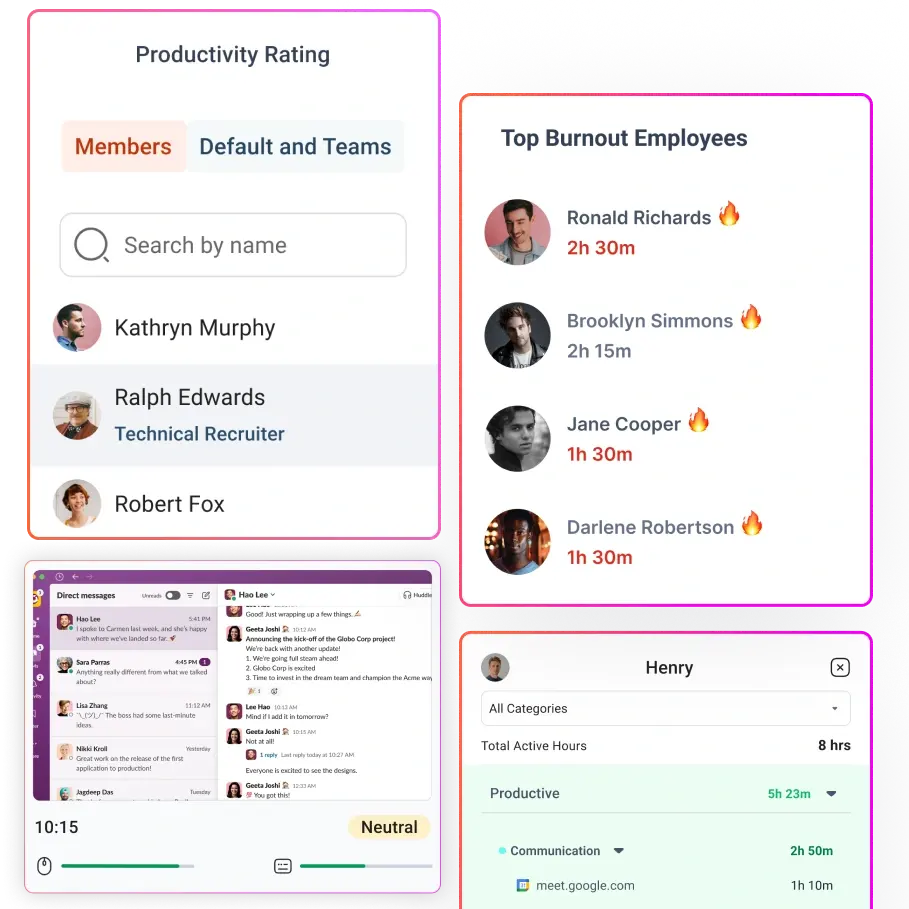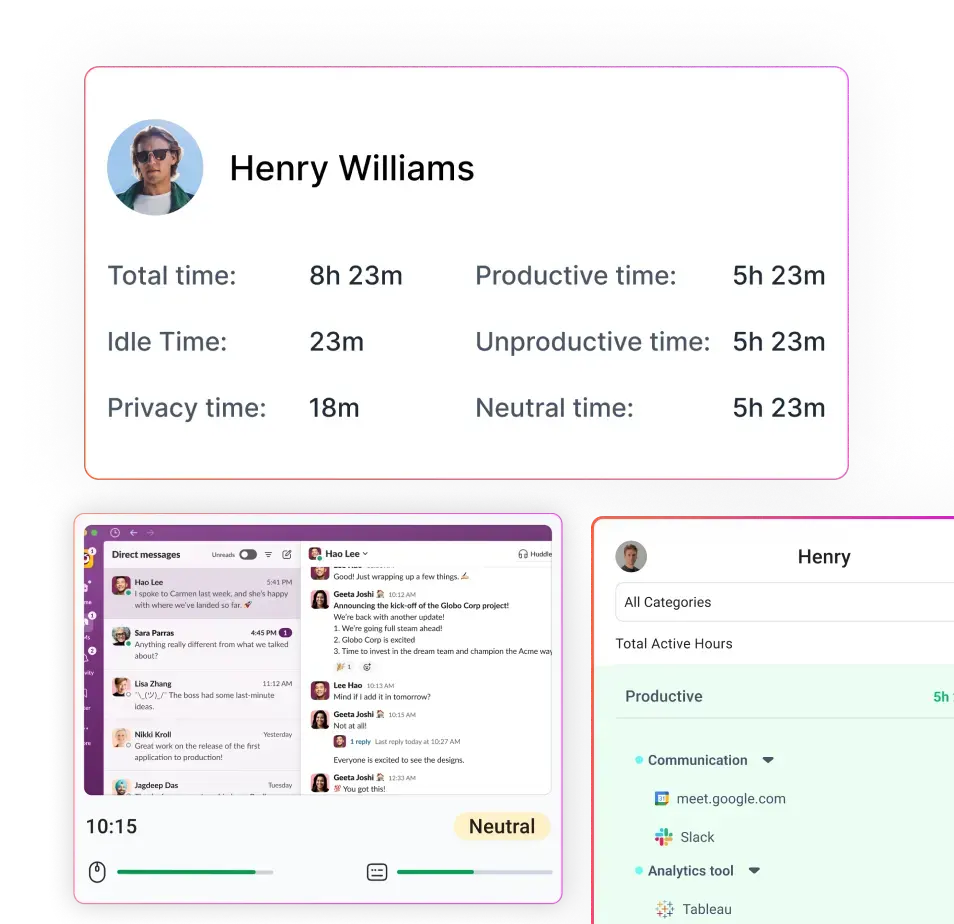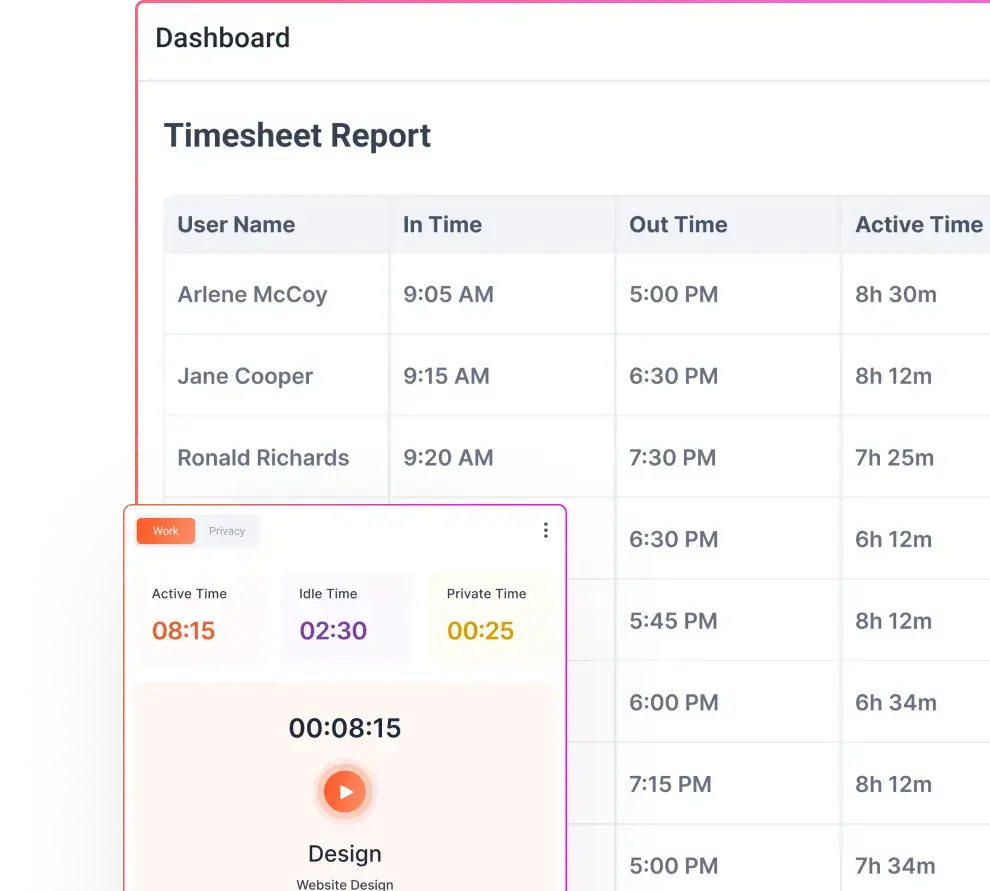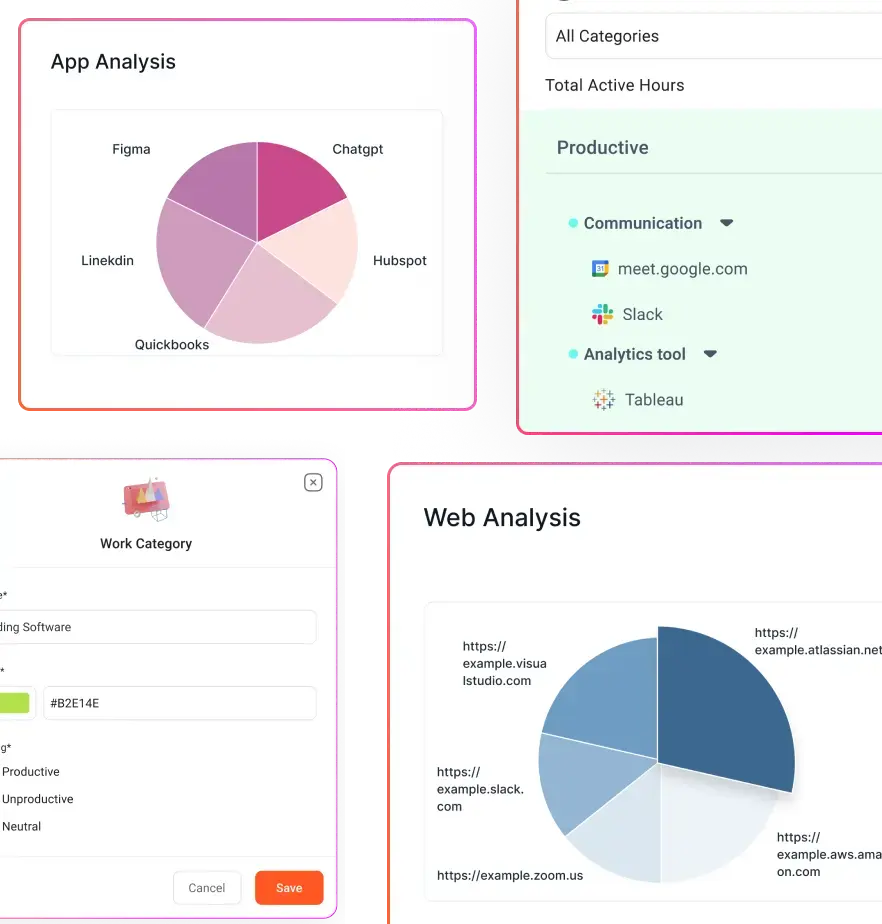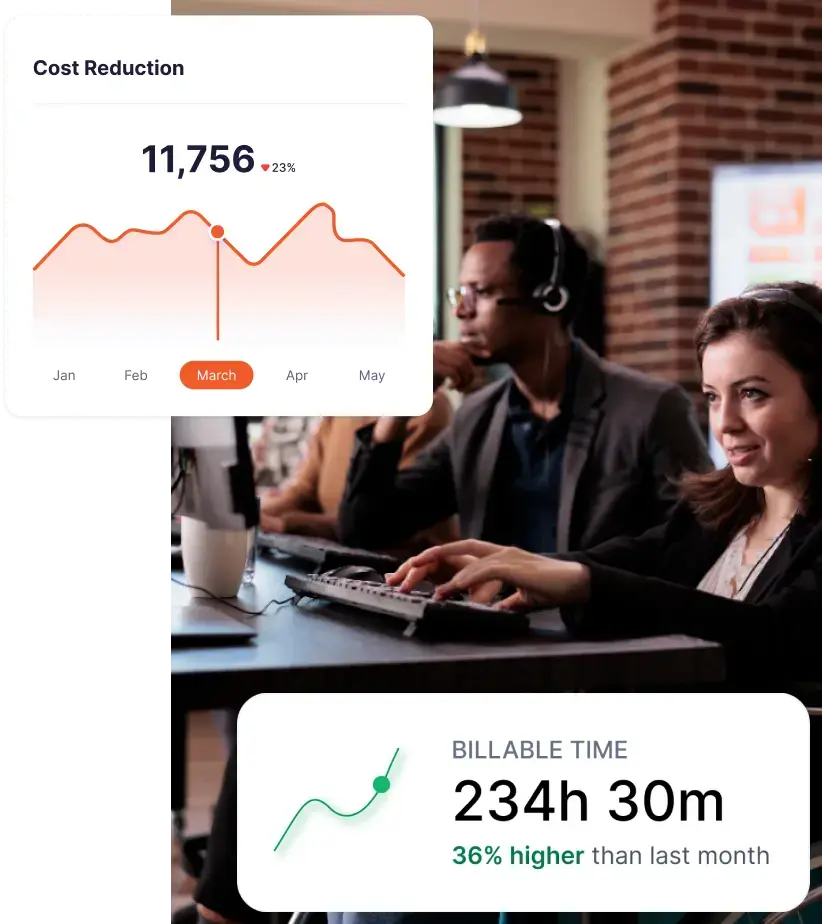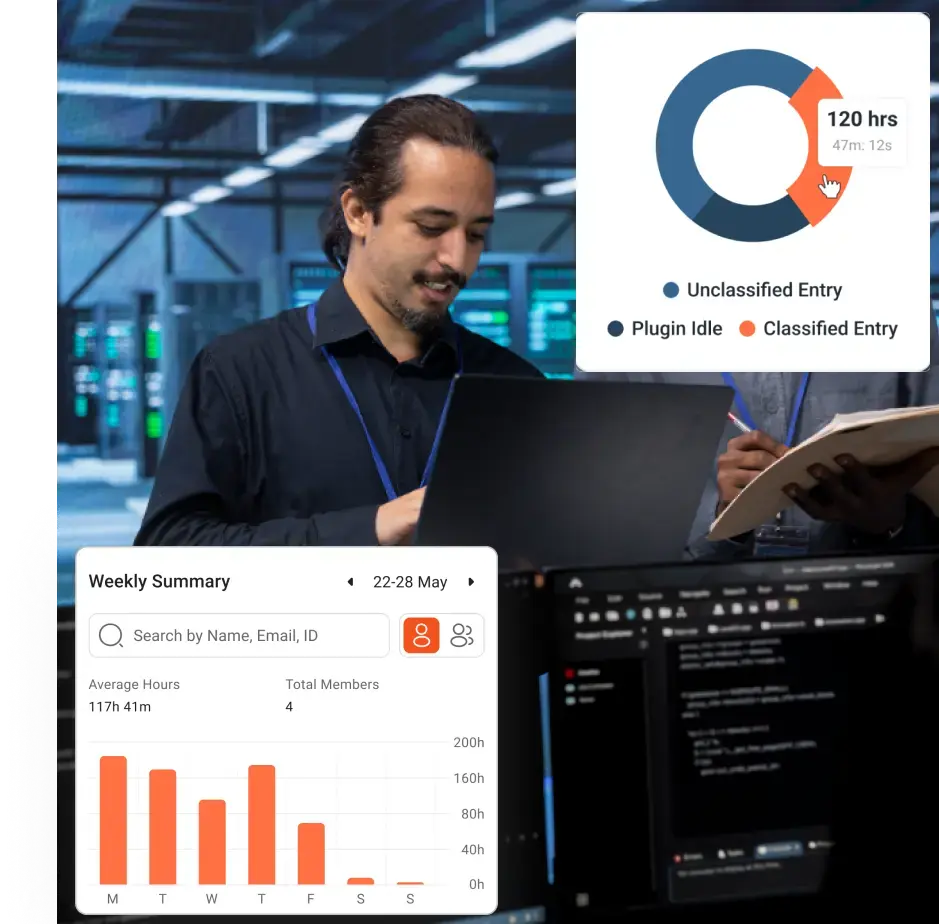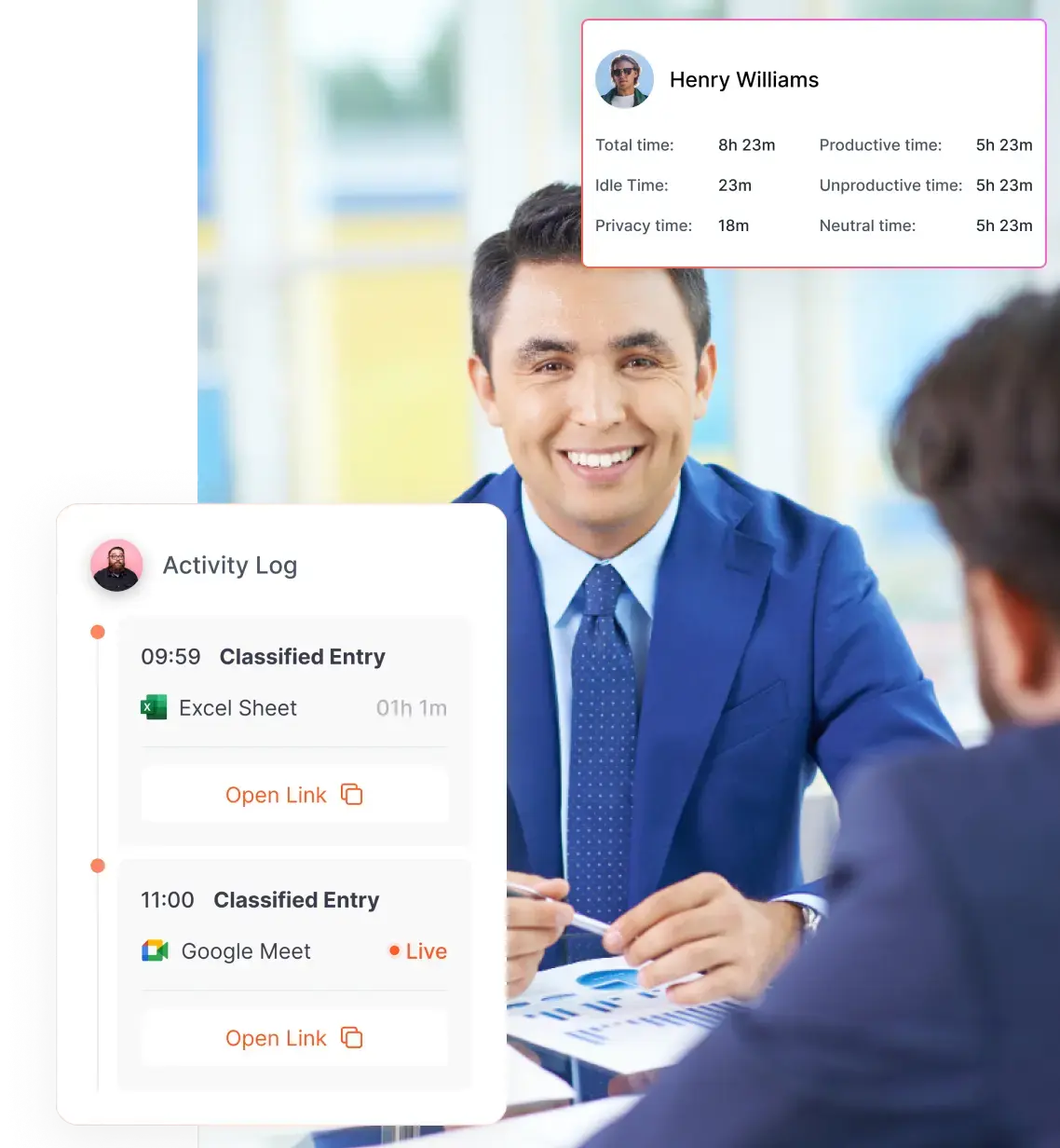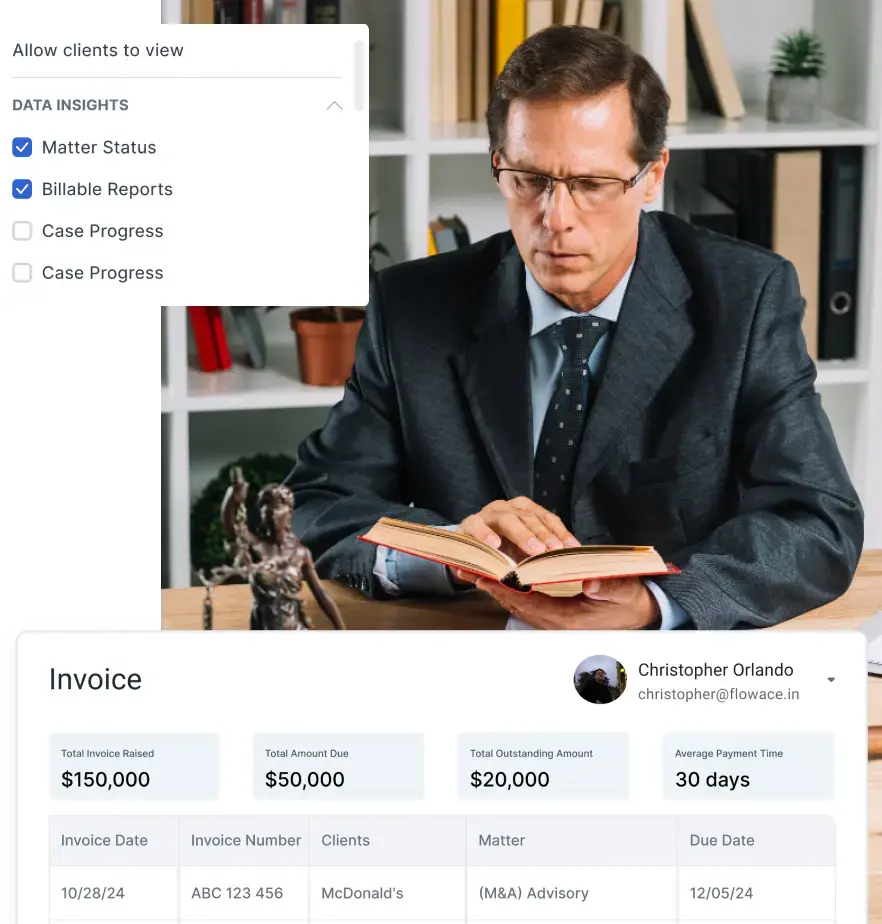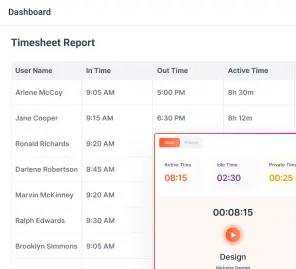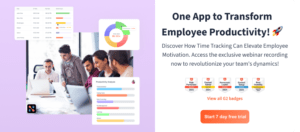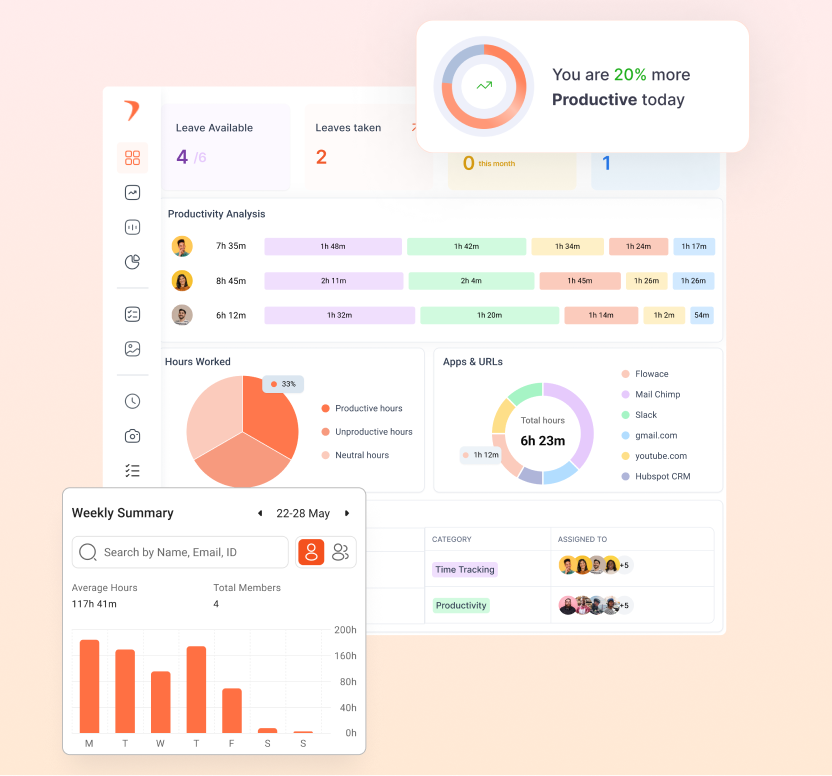Key Takeaways:
- Deputy is primarily a workforce management and scheduling tool, built for shift-based industries like retail, hospitality, and healthcare.
- It excels at scheduling, attendance, and labor compliance, but lacks productivity tracking and automated analytics.
- Flowace, on the other hand, focuses on AI-powered automated time tracking for digital and hybrid teams.
- It tracks apps, websites, projects, idle time, and provides productivity scores — with full privacy control.
- Use Flowace if: You manage remote, hybrid, or desk-based teams and want actionable productivity data.
- Final takeaway:
- Deputy helps manage shifts.
- Flowace helps improve performance.
- For digital-first teams, Flowace is the smarter, more cost-effective choice.
If you’re managing a shift-based workforce — think hospitality, healthcare, or retail — you’ve probably come across Deputy. Known for its robust employee scheduling, attendance tracking, and shift management features, Deputy has carved out a niche as a go-to workforce management solution.
But with so many tools entering the time tracking and productivity tracking space, the big question remains: Is Deputy worth its price? Or are there smarter, more productivity-focused alternatives — like Flowace — that offer better value for your buck?
In this comparison, we’ll do a deep dive into Deputy’s pricing, unpack its features at each tier, and line it up head-to-head with Flowace. By the end, you’ll have a crystal-clear idea of which platform is the right fit for your business — and why Flowace might be the smarter, more cost-effective choice for many modern teams.
When Will Deputy Be the Right Choice For You?
- When you manage hourly or shift-based teams in industries like retail, hospitality, healthcare, or manufacturing.
- When you need powerful scheduling tools to assign shifts, handle swaps, and forecast labor costs easily.
- When accurate time tracking and attendance are linked with payroll, it is a must for your business.
- When labor law compliance (breaks, overtime, fair scheduling) is important to your operations.
- When you run multi-location teams and need centralized scheduling with mobile accessibility.
- When you want to reduce admin workload by letting employees manage their own availability and shift requests.
- When you value employee empowerment and engagement, you allow staff to swap shifts or request time off directly via the app.
Deputy Pricing Plans Overview
Deputy is a powerful workforce management platform built for businesses that rely heavily on hourly and shift-based staff—think retail teams, hospitality, healthcare workers, and manufacturing floors.
At its core, Deputy helps you schedule shifts, track attendance, stay compliant with labor laws, and streamline communications—all from a single, mobile-first platform.
When evaluating Deputy’s pricing, it’s helpful to think about how your business primarily operates: Do you need more scheduling and forecasting? Or is accurate clock-ins and payroll integration more critical? Deputy’s tiered pricing reflects this dichotomy.
The Scheduling Plan is made for purely shift planning. The Time & Attendance Plan is for teams needing robust clock-in, timesheets, and compliance features. The Premium Plan bundles both capabilities, along with labor costing, budgeting, communication tools, and task management. And for larger or compliance-driven businesses, the Enterprise Plan offers advanced forecasting, audit tools, and API access.
Let’s take a closer look at the pricing.
1. Scheduling Plan – $3.50/user/month
This entry-level plan is focused exclusively on shift scheduling. You’ll get:
- Smart scheduling tools
- Open shifts and shift swaps
- Team availability and shift conflict detection
- Schedule notifications
- Custom roles and locations
What’s missing?
- Time tracking
- Payroll integration
- Reporting and analytics
- Productivity insights
This plan is ideal if you’re just looking to manage when people work, not necessarily how efficiently they work or what they’re doing during that time.
2. Time & Attendance Plan – $3.50/user/month
This tier flips the focus: Instead of scheduling, it zeroes in on time tracking and attendance management.
Features include:
- Clock in/out via mobile, tablet, or web
- Timesheets
- Break compliance
- Location and photo capture at clock-in
- Overtime and late tracking
- Payroll export
It’s great for businesses that don’t need to schedule shifts but still want accurate attendance and payroll data.
But again — there’s no productivity tracking. You’ll know if someone clocked in late or left early, but you won’t know how their work hours were spent.
3. Premium Plan – $4.90/user/month
This is where Deputy combines scheduling + time & attendance in one package:
- All features from Scheduling + Time & Attendance plans
- Labor costing and budgeting tools
- Custom reports
- Leave management
- Integrations with payroll (e.g., ADP, Gusto, QuickBooks)
- Task management and communication tools
This is the best value plan if you’re running a shift-based business with multiple locations and need a full suite of tools.
But here’s the catch:
Even in this plan, you still don’t get automated time tracking, productivity metrics, app usage tracking, or distraction reports — things that come standard with Flowace’s entry-level plan.
4. Enterprise Plan – Custom pricing
For companies with complex requirements, Deputy offers custom pricing and add-ons like:
- HIPAA compliance
- Advanced demand forecasting
- API access
- Custom onboarding
- Audit logs
- Priority support
This tier is typically used by large retailers or healthcare providers with hundreds of shift workers.
Deputy Free Trial & Minimum Pricing
- Free Trial: 31 days for any plan — very generous.
- Minimum Spend: You must have at least one active user — there’s no forever free plan.
- Add-ons: SMS alerts and extra integrations may cost more depending on volume.
Let’s now compare that with Flowace, a platform that’s designed from the ground up to enhance productivity, not just log hours.
Flowace Pricing & Features Overview
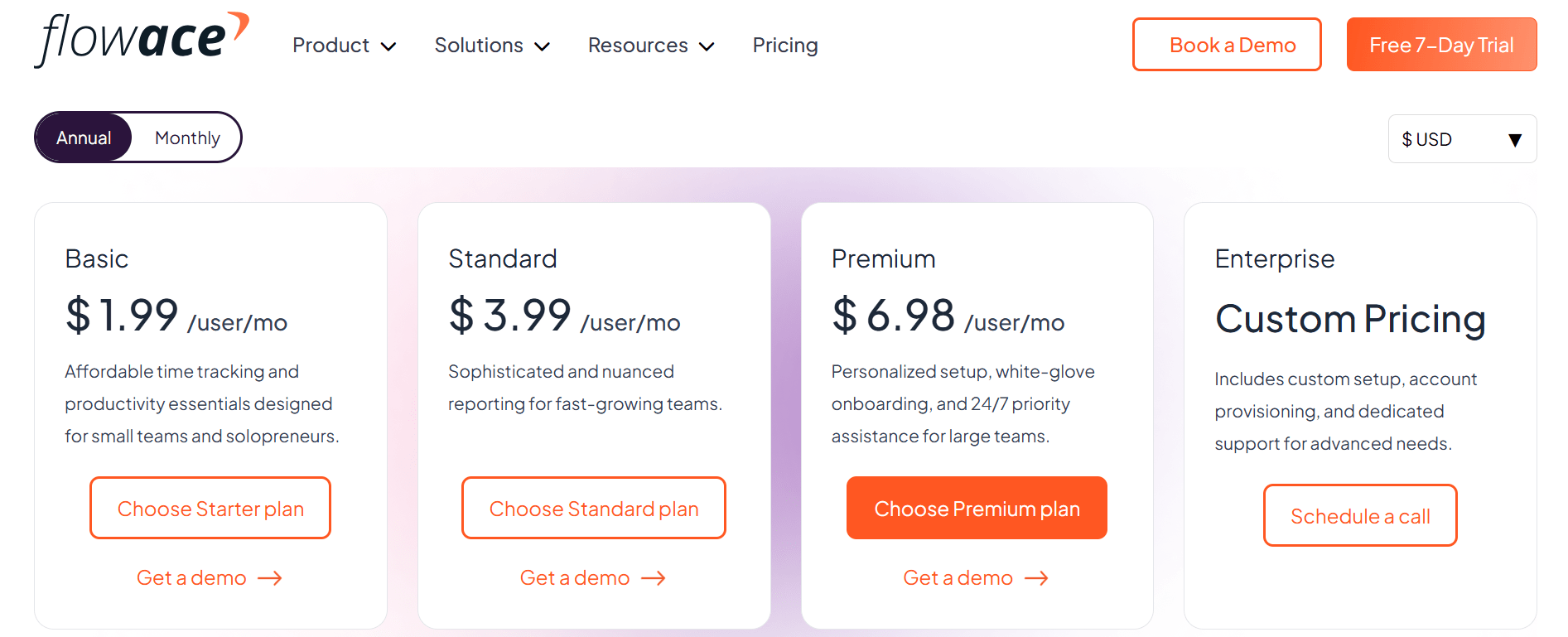
Flowace is designed for modern, digital-first teams — especially those working remotely, in-office, or in a hybrid setup. Instead of relying on manual clock-ins or shift planning, Flowace uses AI-powered, automated tracking to give you a full view of how time is spent across your team.
Here’s how its pricing stacks up:
1. Basic Plan – $1.99/user/month
Perfect for startups, freelancers, or small teams who want core features like:
- Automated time tracking (no manual clock-ins)
- App & website usage logs
- Screenshot capture (with user consent)
- Idle vs. active time reporting
- Project-level time tracking
- Work-life balance indicators
- Daily email summaries
In comparison:
- Deputy offers manual clock-ins and no productivity metrics — even at $4.90/user/month.
- Flowace gives you real behavioral insights into how your team works — for less.
2. Standard Plan – $3.99/user/month
A great fit for scaling teams who want more oversight without micromanaging.
Includes everything in Basic, plus:
- Productivity scoring (based on apps/sites)
- Real-time dashboards
- Integration with tools like Jira, Asana, Slack, Salesforce, and more
- Distraction alerts
- Inactivity detection
- Time usage notifications
Unlike Deputy, which focuses on when people are working, Flowace helps you understand what they’re working on — and how efficiently.
3. Premium Plan – $6.98/user/month
Built for high-performance teams, agencies, or BPOs.
Adds:
- Client login portal
- Advanced project analytics
- Executive dashboards
- Private mode for employees
- Advanced filters and roles
- Dedicated support manager
It’s a full-featured solution for measuring performance, billing clients, and identifying operational inefficiencies.
Flowace vs. Deputy: Feature-by-Feature Breakdown
| Category | Flowace | Deputy |
|---|---|---|
| Primary Purpose | Automated time tracking & productivity analysis for digital, remote, and hybrid teams | Workforce management, shift scheduling, and attendance for hourly/onsite teams |
| Core Time Tracking | Fully automated time tracking (apps, websites, meetings, idle time) | Manual clock-in/clock-out, mobile timesheets |
| Scheduling & Rostering | Not scheduling-focused | Robust shift scheduling, shift swaps, leave requests |
| App & Website Monitoring | Yes — detailed usage with productivity scoring | No |
| Idle vs Active Time Tracking | Yes | Partial (only attendance-focused) |
| Project & Task Tracking | Built-in project/task time tracking | Basic task assignment; not project-focused |
| Productivity Analytics | Deep insights — productivity scores, focus vs distraction, activity patterns | None (focus is attendance & shifts) |
| Employee Activity Screenshots | Optional, configurable | No screenshots |
| Workforce Attendance & Leave | Automated attendance + policies; no shift planning | Clock-ins, break compliance, overtime rules, leave |
| AI Features | AI alerts, inactivity detection, smart insights | Limited (labor forecasting on higher plans) |
| Integrations | Jira, Asana, Slack, Salesforce, Zoho, MS Teams, Trello, etc. | ADP, Gusto, QuickBooks, Xero, payroll tools |
| Remote/Hybrid Team Support | Excellent — built for digital/remote teams | Limited — built for on-site, shift-based work |
| Compliance Tools | Basic compliance reports | Break compliance, labor law compliance, overtime rules |
| Mobile App | Yes | Yes (strong focus on mobile for shift workers) |
| Client Access Portal | Yes (Premium) | No |
| Use Case Fit | Best for digital teams, agencies, IT, BPOs, professional services, remote teams | Best for retail, hospitality, healthcare, logistics, manufacturing |
| Pricing | Basic: $1.99/user/moStandard: $3.99/user/moPremium: $6.99/user/moEnterprise: Custom | Scheduling: $3.50/user/moTime & Attendance: $3.50/user/moPremium: $4.90/user/moEnterprise: Custom |
| Free Trial | 7 days | 31 days |
| Best For | Remote/hybrid teams needing productivity analytics | Shift-based teams needing scheduling & attendance |
Why is Flowace the best for hybrid and remote teams
Automatic + manual tracking, so you don’t lose time when people switch between office, remote, or field work. Flowace supports online and offline tracking, automatically captures app/website usage, meetings, tasks, and idle/active time — helping teams working from home or on client sites seamlessly.
Real-time visibility & analytics across all environments. For hybrid teams, managers can see who is working, from where, and on what — enabling better capacity planning and workload forecasting across both remote and in-office team members.
Productivity insights tailored for knowledge work. Because people often multitask, switch tools, or join many digital meetings, Flowace helps break down where time is spent (apps, websites, calls, idle time). That helps uncover inefficiencies, context switching, or time lost in meetings or tool switching.
Supports hybrid work challenges. The hybrid model introduces coordination issues: asynchronous work, shifting work modes, lack of visibility, or difficulties in ensuring accountability. Flowace offers features that address these specific challenges—helping teams stay aligned and productive even when people are working in different settings.
Balances oversight and trust. Knowledge workers often resist heavy surveillance. Flowace offers configurable tracking modes (e.g. silent vs interactive), and privacy or “stealth” modes so that monitoring can be done ethically, without making employees feel micromanaged. That helps keep trust while still gaining insights.
Integrated workflows suitable for project and task-based work. For knowledge workers (developers, analysts, consultants, etc.), tasks are often complex, multi-step, and rely on many digital tools. Flowace integrates project / task tracking + automatic time capture, so work is aligned with deliverables and you can measure time against tasks or projects.
Better insight into work habits. It helps teams see breakdown of focus vs distraction, idle times, or context switching. For knowledge workers, productivity is not just hours — it’s also how effectively blocks of deep focus are used. Flowace can highlight distractions or inefficiencies, and help optimize workflows or suggest break patterns to reduce fatigue or burnout.
Scalable & consistent across environments. As teams grow, or as the structure becomes more distributed (remote + office), you want a system that scales with roles, teams, permissions. Flowace appears built for that, offering cross-platform tracking (Windows/Mac/Linux, remote desktop, offline, etc.).
Final Verdict: Deputy or Flowace?
Let’s break it down.
Use Deputy if:
- You’re managing hourly workers
- You need shift scheduling
- You care about labor compliance and overtime laws
- Your workforce is on-site and mobile
Use Flowace if:
- Your team works remotely or hybrid
- You want to track true productivity
- You need automated time capture
- You value performance analytics more than just punch-in data
Flowace – A Smarter Deputy Alternative
1. Broader automation & productivity insights
Deputy is known primarily for scheduling, shift & attendance management — clock-ins/clock-outs, rostering, break enforcement, etc. Meanwhile, Flowace adds more automation in the terms of capturing employee activity: apps & website usage, idle vs active time, meeting / calendar / call time, and overall digital workflows. It helps teams not just see when people are on shift, but also how productively they spend their working hours.
This means managers can get richer insights into context switching, focus loss, and productivity bottlenecks that go beyond just scheduled hours.
2. More complete time + project + expense workflow
While Deputy focuses on time & attendance plus shift scheduling/compliance, Flowace offers built-in project & task tracking, budgets, timesheet automation, and even expense/invoicing workflows. That helps connect scheduled hours to actual project work and billable results.
In effect, you can manage not just who works when, but what they accomplish during those shift windows, which is valuable for hybrid teams doing knowledge/project work rather than purely hourly tasks.
3. Competitive pricing + value
According to public comparisons, Flowace positions itself strongly against Deputy on pricing. It claims to provide productivity metrics that Deputy might lack (e.g. automatic monitoring, deeper analytics) even at a similar or lower cost.
So for teams that need more than just scheduling (i.e. also insights + task work + productivity), Flowace might deliver more value per user.
4. Hybrid/remote compatibility & transparency
Hybrid or remote teams have different challenges: tracking work across locations, switching between home/office, or working asynchronously. Flowace supports silent/automated background tracking across devices, capturing digital activity even when remote or offline. That helps maintain awareness of productivity regardless of where people are working from.
Additionally, it offers features like private or stealth mode, which help maintain employee trust by balancing monitoring with transparency. Teams can allow employees to control what data is captured or visible.
5. Insights that drive decisions, not just compliance
Deputy is strong for compliance (shifts, breaks, payroll rules). Flowace adds the analytical layer — productivity dashboards, idle/active breakdowns, app usage patterns, and project alignment. Managers can use these data points to improve team workflows, reduce fatigue, optimize resource allocation, and forecast capacity.
This helps shift from simply enforcing shift schedules to understanding how work happens and improving team efficiency in knowledge work environments.
👉 Start your free trial with Flowace today.
Frequently Asked Questions
1. Is Deputy a productivity tracking tool?
No — Deputy is not designed for productivity tracking. It focuses on scheduling, time & attendance, labor compliance, and shift management. While it does help you manage who is working and when, it does not track how employees spend their time on apps, websites, tasks, or tools. If you need visibility into digital productivity, not just attendance, Flowace is a better fit.
2. Can Deputy replace Flowace for remote or hybrid teams?
Not really. Deputy is built for on-site, shift-based industries like retail, hospitality, healthcare, and manufacturing. Remote or hybrid teams require automated tracking, activity insights, app usage reports, and productivity analytics — areas where Deputy falls short. Flowace, however, is optimized for remote, desk-based, and hybrid workforces, offering automated tracking and real-time productivity analytics.
3. Is Flowace more cost-effective than Deputy?
In most cases, yes. Deputy’s value is in staffing and scheduling, but it becomes costly if you’re not running a shift-based operation. Flowace provides automated time tracking, productivity insights, screenshots, analytics, and integrations at a much lower price point. For digital-first teams, Flowace delivers significantly more value per dollar.
4. Can I use both tools together?
Yes — many companies do. If you’re managing both shift-based workers and desk-based staff, you can use Deputy for scheduling and attendance while using Flowace for productivity tracking and performance analytics. The tools serve different purposes and can complement each other depending on your workforce structure.


